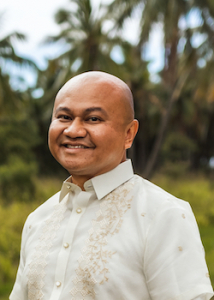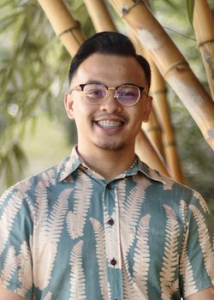
A study from the Thompson School of Social Work & Public Health at the University of Hawaiʻi at Mānoa, reveals the crucial role that Filipino cultural values played in fostering resilience and empowerment within the community during the COVID-19 pandemic.
The research, conducted by Clifford Bersamira, assistant professor, and Jethro Macaraeg, a master of social work graduate, was published in Asian American Journal of Psychology.

“Intersecting Kapwa, Resilience, and Empowerment: A Case Study of Filipinos in Hawaiʻi During the COVID-19 Pandemic” addressed a significant gap in the existing literature on Filipino American resilience. Traditionally, the role of Filipino values in navigating adversity has been overlooked, but this study aims to bring these cultural values into the spotlight.
Focusing on the Filipino population in Hawaiʻi, which Bersamira describes as a “unique context compared with other Filipinos in the U.S.
“We often hear these narratives about how hardworking and resilient Filipinos are in light of the conditions they face, such as during the pandemic,” Bersamira said. “This study helps us understand the role of our culture and values in overcoming challenges and transforming our circumstances.”
This research highlighted not only the resilience of the Filipino community during the pandemic but also serves as a call to action for integrating cultural values into the broader discourse on empowerment and resilience.
Key values emerged from interviews

The study utilized data from 17 semi-structured interviews and employed narrative analysis to identify key Filipino values that emerged in stories of resilience and empowerment. Among these values, kapwa (shared identity) and karangalan-dangal (internal dignity) were found to be central. In the context of resilience, values such as kagandahang-loob (acts of goodwill), pakikisama (companionship), lakas ng loob (inner strength), hiya (propriety), and bahala na (determination) were highlighted. Meanwhile, values like pakikibaka (resistance), pakiramdam (shared inner perception), karangalan-puri (external dignity), utang ng loob (debt of gratitude), and katarungan (justice) were associated with empowerment.
“Our research highlights how Filipino cultural values like kapwa (shared identity) and karangalan-dangal (internal dignity) are vital for fostering both resilience and empowerment, helping the community not just endure challenges but actively transform the systems that create them,” said Macaraeg.
The study’s findings suggest that a deeper understanding of Filipino American resilience and empowerment requires an appreciation of these specific cultural values. For researchers and service providers, the study advocates for developing resources that are grounded in these cultural traditions, ultimately inviting a rethinking of strategies to support the Filipino American community.
—By Maria Pou

